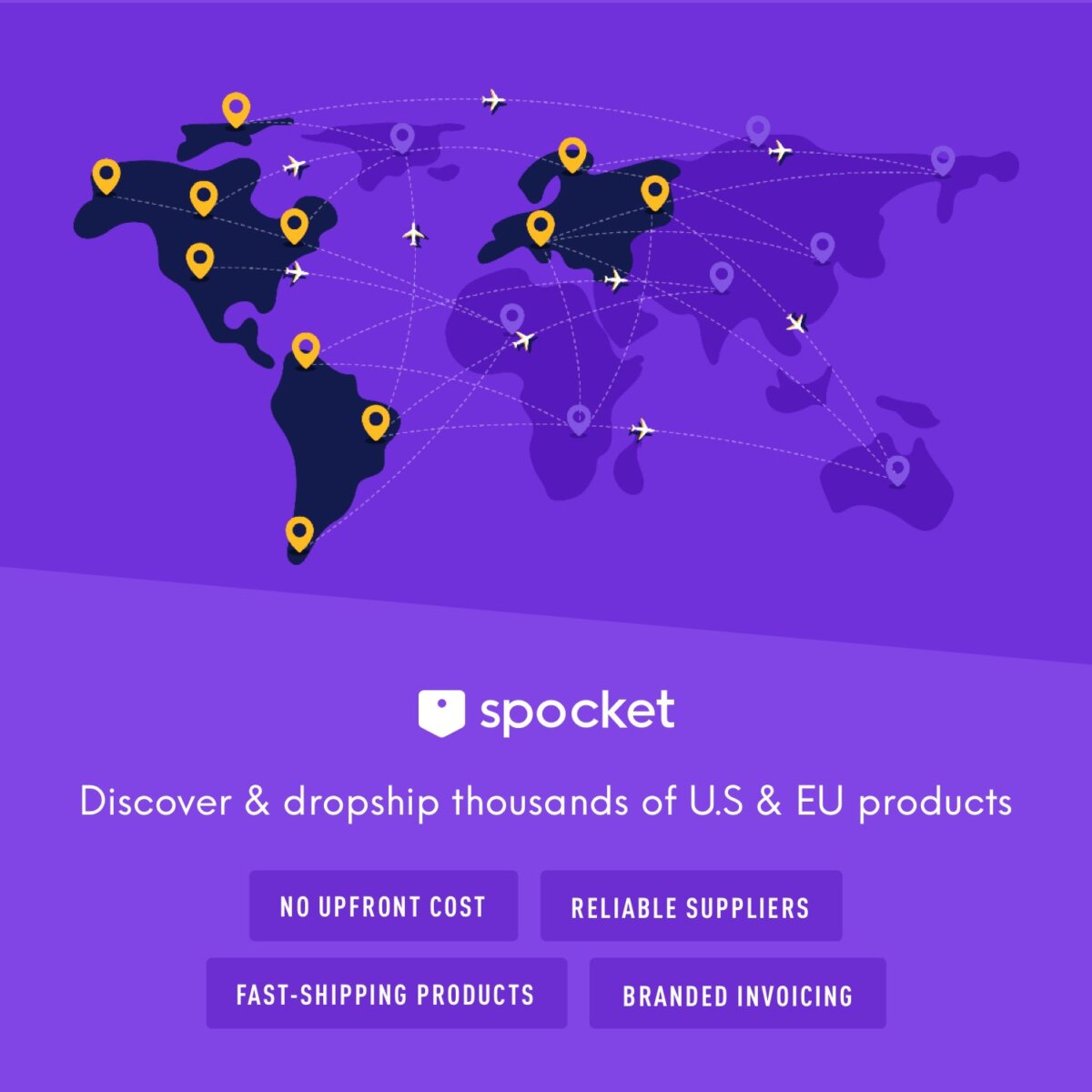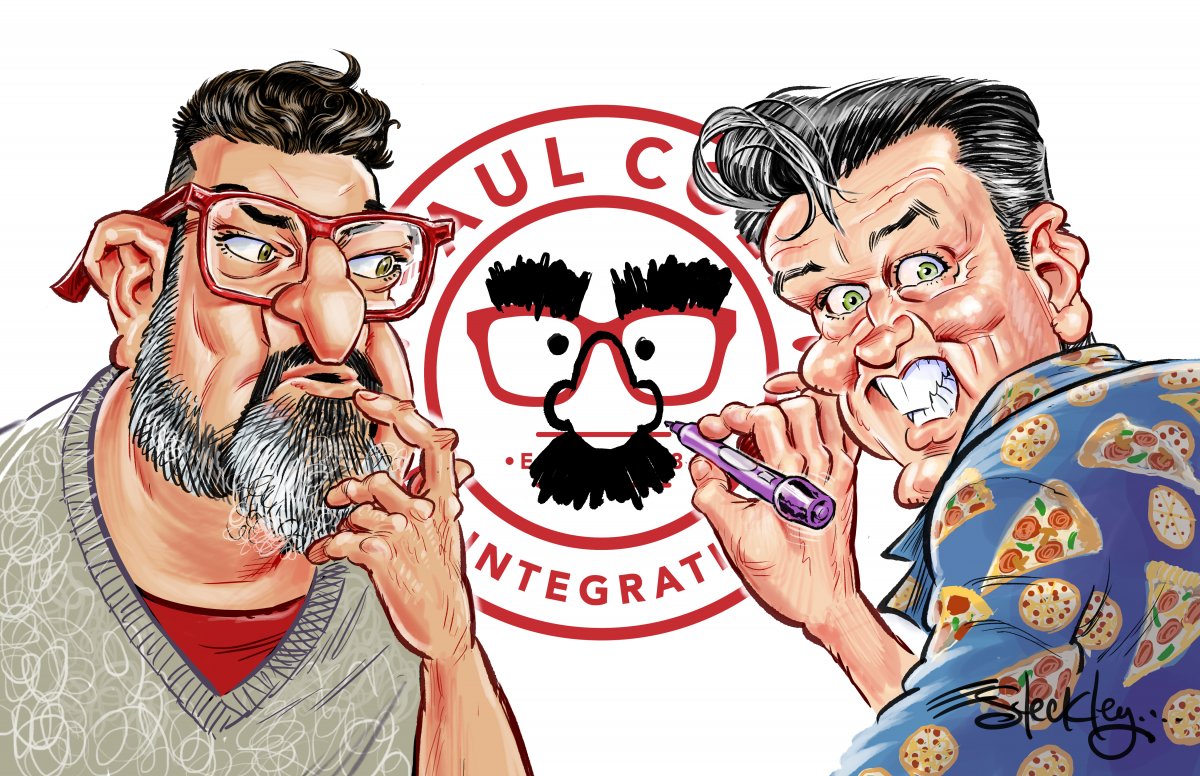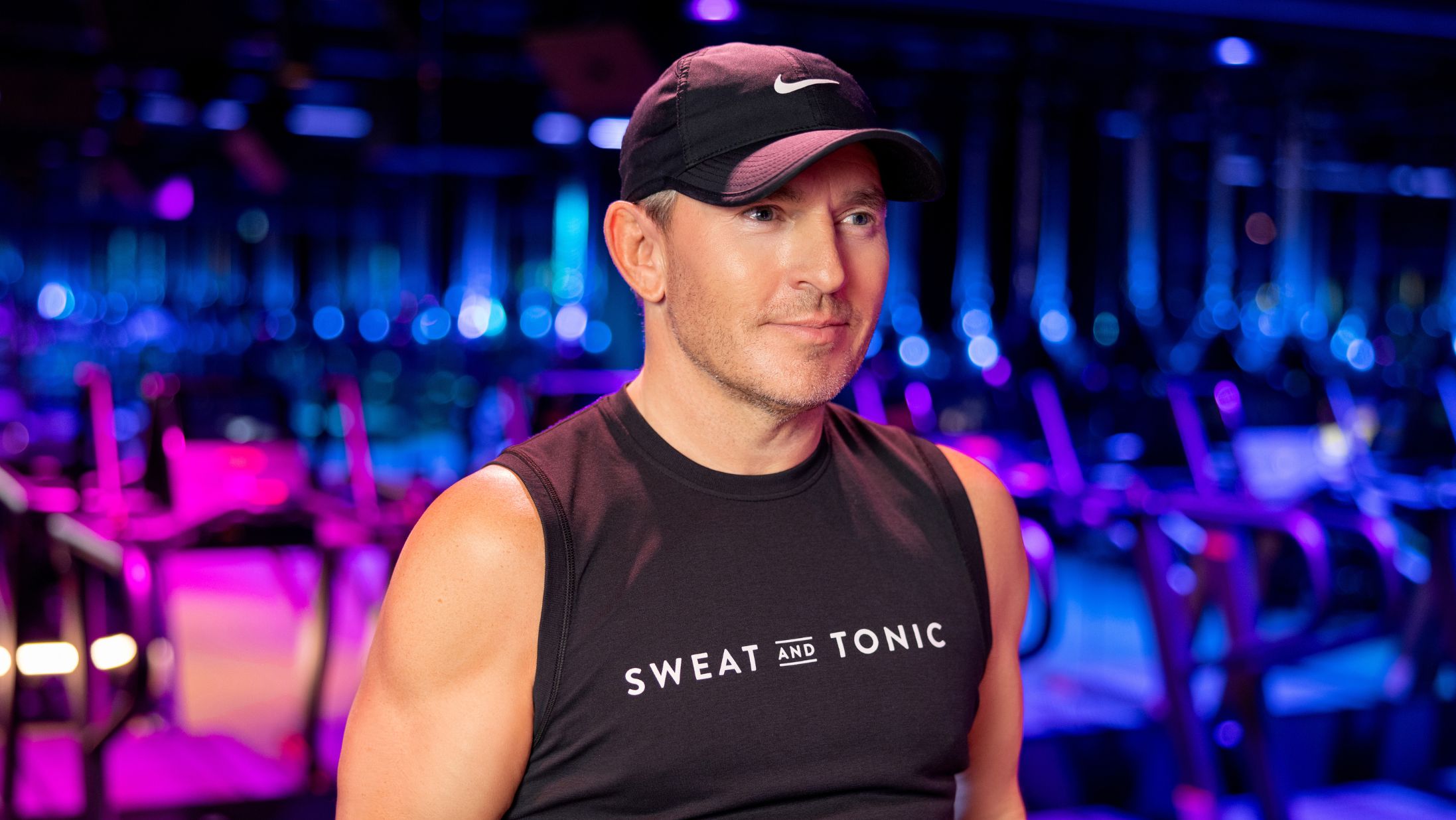[vc_row][vc_column][vc_column_text]There’s an old saying that goes, “If you want something done right, do it yourself.” When Saba Mohebpour wanted to start an online store, but couldn’t find a software that would allow him to source from local suppliers, he made the software himself.
In 2012, Mohebpour moved from Shiraz, Iran to Canada to study pre-medical at the University of British Columbia. From the age of seven, he had a dream of becoming a neurosurgeon. However, in his last year of school, Mohebpour saw a video that changed his entire career path.
“I was watching a YouTube video where this guy, a 17-year-old, built an app and sold it for like 30 million,” said Mohebpour. “I started thinking that if this 17-year-old can code, I’m in my fourth year at university, I probably can code as well.”
He began learning how to code that very night. From then on, Mohebpour could be found in his dorm room, skipping classes and completely mesmerized with coding. After graduation, he took on jobs within the programming field, before eventually taking part of ‘The Next Big Thing’ with Ryan Holmes, from Hootsuite, in the summer of 2016. The program was designed to help young entrepreneurs start their careers and give them a space to learn and grow. It was at the end of the program that Mohebpour came up with the idea that has turned into his career: Spocket.
Spocket operates in the dropshipping market, enabling online retailers to sell products directly to consumers from the manufacturer. Mohebpour got the idea, when he wanted to begin his own e-commerce store, but couldn’t find a way to source from local vendors.
“I searched all over the internet to find a solution that would help me out to source products from local suppliers, and I could not find anything,” he said. “Pretty much any software or any solution out there was focusing on Asia as the source of suppliers; mostly folks on Alibaba and AliExpress.”
Now, Spocket helps over 50,000 online retailers get high quality products into the hands of their customers. For Mohebpour, this number represents all of the entrepreneurs and side hustlers who he’s had the chance to help.
While his family still hopes he’ll go on to become a doctor, “I’ve built a business with 40 employees, and hiring 40, 50 more in the next six months, but my mom still says ‘Okay, when will this be done so you can go back to school to study medicine?’” laughs Mohebpour, he has his sights set on helping entrepreneurs all over the world.
For this week’s Entrepreneur of the Week spotlight, Bay Street Bull spoke with Saba Mohebpour, CEO of Spocket, about e-commerce, enabling other entrepreneurs and the power of a side hustle.


We operate in a market called dropshipping, which basically enables entrepreneurs and retailers—mostly focusing on SMBs—to be able to source products and sell things without holding inventory. That’s what dropshipping means. It’s like the opposite of wholesale.
I wanted to basically start a business myself, but in 2017, when I built Spocket, I searched all over the internet to find a solution that would help me out to source products from local suppliers, and I could not find anything. Pretty much any software or any solution out there was focusing on Asia as the source of suppliers; mostly folks on Alibaba and AliExpress. The thing is, there were a lot of issues with them. It was taking six weeks to eight weeks for the products to be shipped to North America, the quality wasn’t necessarily as high, and some suppliers were unreliable. I didn’t want to use those softwares, but there was no other solution. So I was like, ‘What if I build a software and try to onboard low cost suppliers to my platform, to help myself and other online retailers to source products locally and dropship them from local suppliers?’
So I think that’s the biggest thing that really differentiates us from everyone else in the market. When you focus on local suppliers you add values, like fast shipping and vetting suppliers, which means that you’re working high quality products. So those values really differentiate us in the market. In the span of three years, over 50,000 retailers are using us.
What does it mean to you to be an entrepreneur whose whole mission is essentially to help uplift other entrepreneurs? Did you ever see yourself in that kind of position?
I listen to a lot of interviews with Harley and Tobi, the President and the CEO of Shopify, because they talk about empowering entrepreneurs around the world and to really give them [entrepreneurs] the resources to be able to be successful. That [mindset] resonates with me so much. What myself, and many other founders, do in the market, is enable other entrepreneurs to build their businesses online and provide them with those sort of solutions to quickly launch an e-commerce business. We take care of everything in the background, all the supply chain related things. So honestly, it feels amazing to know that there are 50,000 other people building their businesses on top of what you built three years ago. It just feels incredible. But as Harley and Tobi say all the time, you feel like you are very much responsible as well, because some of the decisions that you make could impact all of those people and their families. So, it’s also a lot of responsibility.
What was the biggest lesson for you while building Spocket and along this journey?
Oh, many lessons. Crazy lessons on growth, crazy lessons on product, crazy lessons on hiring and building a team—I think like the biggest, most important one is around building a team. I know it sounds cliche, everyone talks about it, but building a strong team and bringing in the right people is so important. I’ve brought on people that I thought would be great, but after a couple of months you see that they have a negative on the business and on the company. On the other hand, if you bring in one right person, you can see how much they accelerate things. So it’s important to be very, very careful about every single person you take on. It takes us time, weeks, to go through multiple steps to really figure it out if a person is the right fit. So I think hiring and building a team is the biggest lesson.
Obviously the pandemic has had an effect on many businesses, mostly negative, but for e-commerce, it actually accelerated it forward. E-commerce skyrocketed and accelerated by years. How has the pandemic affected Spocket ?
The way that our platform works, we’re basically enabling many other online retailers. So if every single one of them grows marginally, it reflects our success. In the past year, a lot of unfortunate things happened because of the pandemic, but in general it was massive for e-commerce. It accelerated e-commerce by 10 years. It was crazy in terms of the volume that we were moving and we really grew significantly. Within three or four weeks [at the beginning of the pandemic] we saw a crazy amount of growth, and it’s continued until now. We’re still growing.
Did you see an increase of people using Spocket?
I mean, on a day-to-day basis in the past three years, Spocket would get a decent number of people starting a new business every day. I don’t know the exact number, but it doubled starting in March and April. I think there were many different reasons. It wasn’t just because e-commerce grew, but a lot of people lost their jobs and were looking for side hustles. They were looking for an extra stream of revenue, and e-commerce and dropshipping is one of those business models that has a very low barrier. There aren’t many start-up costs involved. You need to spend $30, $40 a month to start. So it’s very low barrier and a lot of people wanted to get started in the business.
As someone who uplifts other entrepreneurs, the so-called “side hustlers”, how do you hope our culture shifts to kind of see that this is a real job that people are putting their time and energy into. How do you hope the kind of outlook on dropshipping and side hustle changes?
So, that’s a great question. We have two segments of customers. For one of them, which is the vast majority (90-95 percent of our merchants), this is their side hustle. They have their own job or they’re a student; they do other things full-time. This is something that they spend an hour or two a day on to make some extra cash. For the other five percent, this is literally their main thing. This is their full-time job. For this five percent, the way it usually works is that they start with one shop and it becomes successful, then they keep starting new shops in new niches and new categories of products. They’ll focus on different audiences or target new areas in the world.
For the other 95 percent of folks that this is a side hustle, it’s really amazing. For a lot of people, this is the first time that they’re getting into entrepreneurship. So that means it’s the first time that they learn different platforms, like Shopify or Wix or Squarespace. They learn how to use Spocket, how to manage their time, how to run ads on Facebook and Google. They literally learn all these things along the way while they’re building their store. It’s fantastic. It’s the best learning experience with a very small amount of budget.
Just think about if you’re a student in school, and you can supplement some extra revenue on the side. It could be as low as a hundred bucks a month, or it could be a thousand. There’s a college student who was making almost half a million dollars in three, four months [with Spocket]. It’s amazing for people to get into because first, there’s a lot of learning involved. You’re going to learn so much about tech, about marketing, about growth. It’s going to shift your mindset about what you can actually do. Second, you could have some extra cash coming in on the side which is always great.
As an entrepreneur, what has been the kind of best piece of advice that you’ve received?
There’s this one line that I read somewhere a few years ago and it’s always on my mind. It really helps me to do things the way that I do. It said, ‘Success is not owned. It’s rented and the rent is due every day.’ I think that’s something that every entrepreneur should understand. If you want to be successful, you have to pay the rent and you have to pay every day. There’s no days off. You’ve got to work your butt off and you can’t just give up. I think that’s been the most important thing that I learned over time, because there are so many problems you’re going to face, from growth to fundraising, from finances to building a team, that if you are not willing to be strong and hustle, you’ll give up very quickly for sure.


I would say what Elon Musk says all the time: you don’t really need to go to school or get a degree to be successful. I went to school for years and I had the best time there. I think school is amazing for the social aspect of it: party, have fun, make friends. But honestly, out of all the courses I took, the one that I use right now was an elective: food and nutrition. The course content is something that stayed with me—it helps with my diet and eating healthy and clean, but nothing else was actually useful.
I’m not trying to say that school is not good, but I’m saying that if you want to get into entrepreneurship, there are things that you cannot learn at school. You’ve got to do it. I started pretty early, so I can’t really say that I wish I started earlier, but maybe I could have started back in my first year of school [instead of my last].
What’s next for you and Spocket? What’s your wildest end goal? Where do you want to go here?
I talk about it from two perspectives. There’s one, which is pretty boring. There’s one, another, another perspective that is cool.
So the boring one is that I think we would be able to have a very big impact on the supply chain. If you look at different parts of the market, companies are created to create efficiency in the system. The bigger the opportunity to create efficiency, the bigger the opportunity for your company to grow. In the dropshipping space and e-commerce as a whole, inventory is one of the biggest issues. It costs a lot. It’s a dirty process. There are so many middle men, like distributors, wholesalers and shipping. If there’s a common solution to try and create more efficiencies within the supply chain, that will become a massive business and also have a massive impact on the supply chain. We want to be one of the solutions that could fix and clean up the supply chain to some degree. Personally, I believe that dropshipping is going to be one of the solutions because it removes inventory from the supply chain. Shipping goes directly from the supplier to the consumer. It basically removes all these middle men and makes a sort of ecosystem.
The cool part is that we’re basically enabling entrepreneurs to build their businesses every day. My overall goal and mission for the past two, three years, is to be able to enable a million entrepreneurs around the world. The very cool aspect of this is let’s say someone’s making $100 a month. In North America, $100 might be like, ‘It pays for my Starbucks coffee for a month.’ But to empower people around the world who might be living on $1 a day, $100 a month is like four times more money to buy food or send their kids to school. What gets me excited is that one day when we go international—which we want to do in 2021—the impact that we can have on a lot of those on underprivileged countries is going to be massive. If we can enable a million people around the world to have that stream of revenue, I’ll be very happy.
I guess that kind of leads into my last question then. How would you define success?
Success would be if we can enable a million people around the world to have a stream of revenue as a side hustle. I don’t know how long it’s going to take to get there, the faster, the better. I hope we can do that in the next three, four years. I would be pretty stoked.
A lot of my personal success is connected to the company, but at the same time, for me, success just means I enjoy my time every day. I work a lot. I play violin. I workout. I hike. I go out with my friends. Continuously doing those things makes me happy—that’s success. [/vc_column_text][vc_separator color=”custom” style=”double” border_width=”3″ accent_color=”#891df4″][/vc_column][/vc_row]













